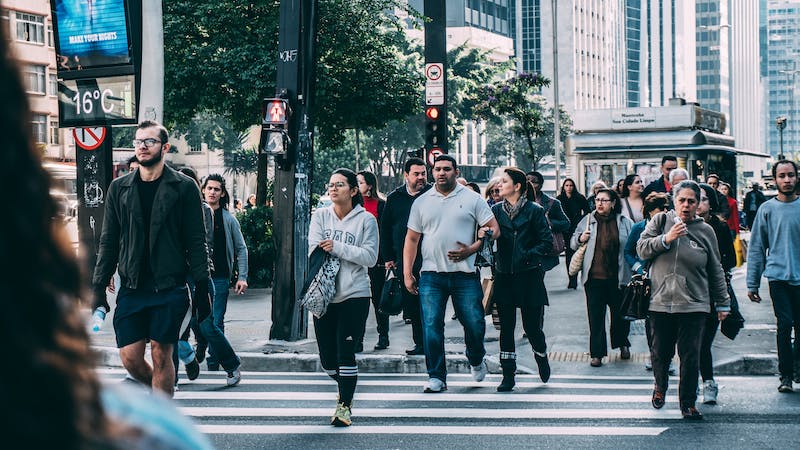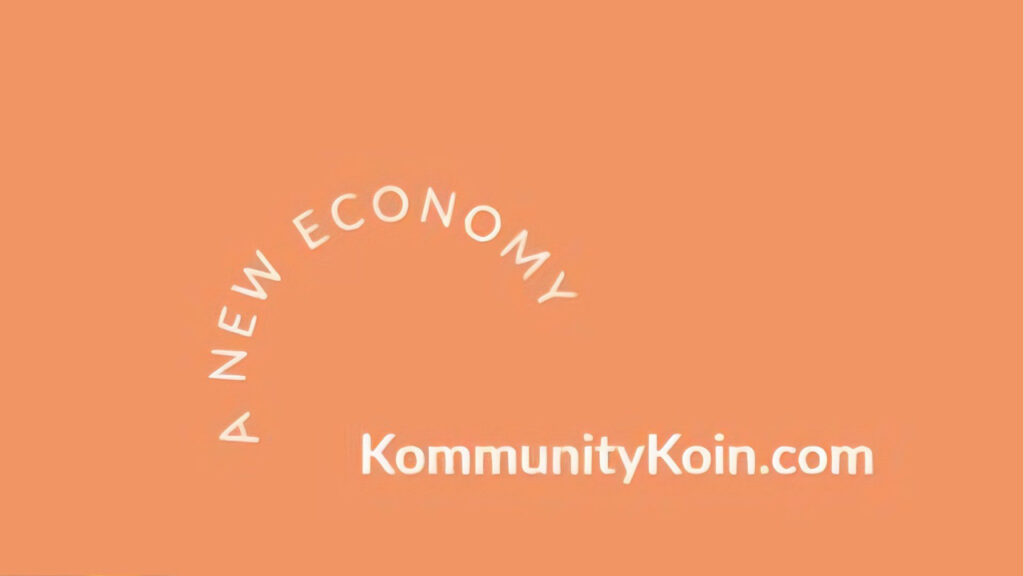We are social creatures and, since the beginning of humanity, we have always required community.

See 17 Amazing Ways To Make Money
Click the button below for FREE exclusive access to amazing content on KommunityKoin.
Without community we become isolated, depressed and unhealthy. One of the worst things that can be done to a human is to isolate them from others. But community is necessary for more than just physical and mental health, it’s also necessary for economic health.
Social Capital is an important idea, of which most have not heard – even though it is an integral part of our daily lives. What is Social capital? It is a network of relationships among people who live and work in a particular society, enabling that society to function effectively. And, a network of relationships is more important than you might think.
In This Post We Will Address
- The importance of social relationships
- Why you should make the effort to build better social relationships
- How you will benefit for these efforts
- Learning new ways of valuing yourself and your connections
- How to build Social Capital
- How to build Social Networks
- The benefits of Mutual Assistance and Mutual Aid
- How to capitalize on your connections
When we think about relationships, we tend to think about the emotional aspects of that word. But, the idea of relationships is actually much broader than just that. Let’s look at some ways in which this word affects us more profoundly than just our emotional lives.
The word relationship has multiple definitions

- Connection
The state of being related or connected. For example, “What is your relationship to the soloist?” .
- Kinship
A connection by blood, marriage, or adoption. For example, “She’s my daughter”.
- Association
A continuing attachment or association between people, firms, or countries. For example, “The two men have a good working relationship”.
- Feelings
The mutual feelings, connections, or dealings that exist between two parties. For example, “I have a love-hate relationship with my ex”.
- Way of connecting
The way two or more people are connected, or the way they behave toward each other. For example, “The evidence points to a close relationship between poverty and disease”.
We can see that Relationships really are what life is about. Whether they are family relationships, love relationships, friendships, business relationships, social relationships, or even; legal, community or national relationships. And, since we are already a part of so many relationships, and benefiting from them in many ways; social, economic, security, etc, why not organize those relationships in such a way as to make them work to our benefit more efficiently and effectively?
You May Be Thinking

- Things are fine the way that they are.
- I’m getting by.
- I have enough money to meet my basic needs.
- I have enough friends to meet my basic needs.
- I have access to enough services and stuff to meet my basic needs.
- Why should I make any more effort when it comes to the subject of relationships or community?
- Don’t I already have what I need?
To some extent, this may be true. But,
- Couldn’t your situation be better?
- Couldn’t your life be better?
- Couldn’t your economic situation be better?
- Couldn’t your social relationships be better?
- Wouldn’t it be better if you had access to more services and stuff?
- Wouldn’t it be better if your economic, social and resources situation was not only better quantitatively, but also better qualitatively?
These are the questions that we are going to be answering.
How We Are Changing Things

What we are doing at KommunityKoin, is trying to provide a way in which you can improve all of these things. A way in which you can improve your economic situation, your social situation, your access to resources situation. What we are NOT trying to do, is replace the market economy or money.
We are NOT proposing that living a Core Economy driven life (a life centered on the ideas of community, social capital, goodwill, networking, and just plain neighborliness) will replace living in the Market Economy driven world (a world centered on profiteering, taking advantage for financial gain and one-upping your neighbor).
What we ARE proposing is that, living a Core Economy driven life will enrich the life that you already have in the market economy world.
We will always need money and we will always need to live in the market economy, but we do not need to be driven by the market economy philosophy and values of profiteering, taking advantage of one another and one-upping our neighbor. We can still live in the market economy and take advantage of its resources, but, at the same time, supplement that by also participating in the Core Economy – by living a core economy driven lifestyle.
We can still earn money, pay our bills, pay our taxes and do all of the things that we need to do in life while, at the same time, building our foundation of living on the ideas of goodwill, community, volunteerism and just plain neighborliness. Just because we live in a world that values profiteering and taking advantage of others doesn’t mean that we need to value those same things. We can build our lives on different values.
We are not proposing that you remove yourself from the market economy, but rather, that you; Live better (within the market economy).
So let’s get down to the academic business of learning how to do this. There are four foundational ideas that one can leverage for building a deeper, more meaningful and more beneficial social network, i.e. social relationships.
The 4 Steps To Building A Valuable Network

Building Social Capital
Building social capital is a strategic and nuanced process that involves cultivating meaningful relationships and networks. Some important points for doing this:
- Look close to home. You already have relationships and networks. Build on those.
- Look to foster genuine connections with the relationships and networks that you already have.
- Be honest and authentic. This builds trust and lays the foundation for lasting relationships.
- Build a reciprocal and dynamic network of relationships.
- Create a supportive network where people feel valued and understood.
- Communication is key. Regularly engaging with others through various channels helps maintain and strengthen connections.
- Sharing insights, information and resources fosters a sense of collaboration and mutual benefit.
- Being a reliable and helpful resource to others establishes a reputation of dependability, which is an integral part of social capital.
- By actively participating in social circles, attending events, and contributing positively to communities, individuals can enhance their social capital, creating a network that not only supports personal growth but also opens doors to opportunities and collaborations.
Building Social Networks
Building social networks is of paramount importance in both personal and professional spheres, as they serve as the lifeblood of opportunities, support, and growth.
- On a personal level, social networks provide a sense of belonging and emotional support.
- Friends and acquaintances within these networks offer companionship, advice, and understanding during both joyous and challenging times.
- The diverse perspectives and experiences within a social circle contribute to personal development, fostering a broader worldview and enriching one’s understanding of different perspectives.
- In the professional realm, the importance of social networks cannot be overstated. Networking opens doors to job opportunities, career advancements, and industry insights.
- A robust professional network provides access to a wealth of knowledge and expertise, enabling individuals to stay informed about industry trends and developments.
- Moreover, a strong professional network can act as a support system, offering mentorship and guidance, which is invaluable for career progression. Collaborations and partnerships often stem from these networks, creating avenues for innovation and shared success.
In essence, the importance of building social networks lies in their ability to enhance both personal well-being and professional success, creating a web of connections that can be instrumental in navigating life’s various challenges and opportunities.
Mutual Assistance And Mutual Aid
The importance of building mutual assistance and mutual aid networks lies in the creation of resilient and supportive communities.
- These networks foster a culture of reciprocity where individuals contribute to the well-being of others, creating a web of interdependence.
- In times of crisis or adversity, such networks become crucial safety nets, providing immediate assistance and resources. Whether it’s helping a neighbor with daily tasks, offering emotional support during challenging times, or pooling resources for collective benefit, these networks build a sense of solidarity that strengthens the fabric of a community.
- By cultivating a culture of mutual assistance, individuals contribute to the overall resilience of their communities, ensuring that everyone has access to the support they need.
- Furthermore, mutual aid networks contribute to social justice and equality. They often arise in response to systemic issues and inequities, providing a grassroots solution to community challenges.
- These networks empower individuals to address shared concerns collectively, promoting a sense of agency and self-determination.
- Through mutual aid, communities can work towards dismantling barriers and creating a more inclusive and equitable society.
In essence, the importance of building mutual assistance and mutual aid networks lies not only in their immediate benefits during times of need but also in their potential to foster long-term community strength, resilience, and social change.
We Are Already Doing It, Why Not Organize It In A More Beneficial Way
The idea of organizing our existing social networks reflects the growing recognition of the value inherent in the connections we’ve already forged.
- Organizing these networks involves structuring them in a purposeful manner, identifying key relationships, and understanding the dynamics within the network.
- Utilizing technology and platforms to categorize, manage, and strengthen these connections can lead to more effective collaboration, resource-sharing, and mutual support.
- Organizing social networks can also enhance targeted communication, allowing individuals to engage with specific groups based on shared interests, expertise, or goals.
- In a business context, individuals can harness their networks to promote products or services, generate leads, and access potential clients or partners.
- Platforms that facilitate networking, such as Facebook, Reddit, Pinterest or LinkedIn, have exemplified how social connections can translate into other opportunities and growth.
- However, it’s essential to approach this organization effort ethically and authentically, ensuring that the focus remains on mutually beneficial relationships rather than exploiting connections solely for financial gain.
- Maintaining a healthy social organizational structure can lead to a more effective and sustainable use of our social networks, unlocking both personal and professional opportunities.
Hopefully you now have a better understanding of what we are trying to do at KommunityKoin. We are trying to build a new way of thinking about, and approaching, the ideas of; community, economics, lifestyle, value and just plain neighborliness. We are not trying to replace the current economic system, but rather, we are trying to show people that it can be deepened and made more enriching and rewarding.
Building beneficial relationships and communities does take a bit of effort, but isn’t it worth it in the long run? So, when you start thinking, why should I make the effort, remember that anything that is worth having takes effort to get.
The things in life that take little effort have little value.
So, join us in this new way of doing and being. We think that you will be glad that you did. We look forward to time banking with you.